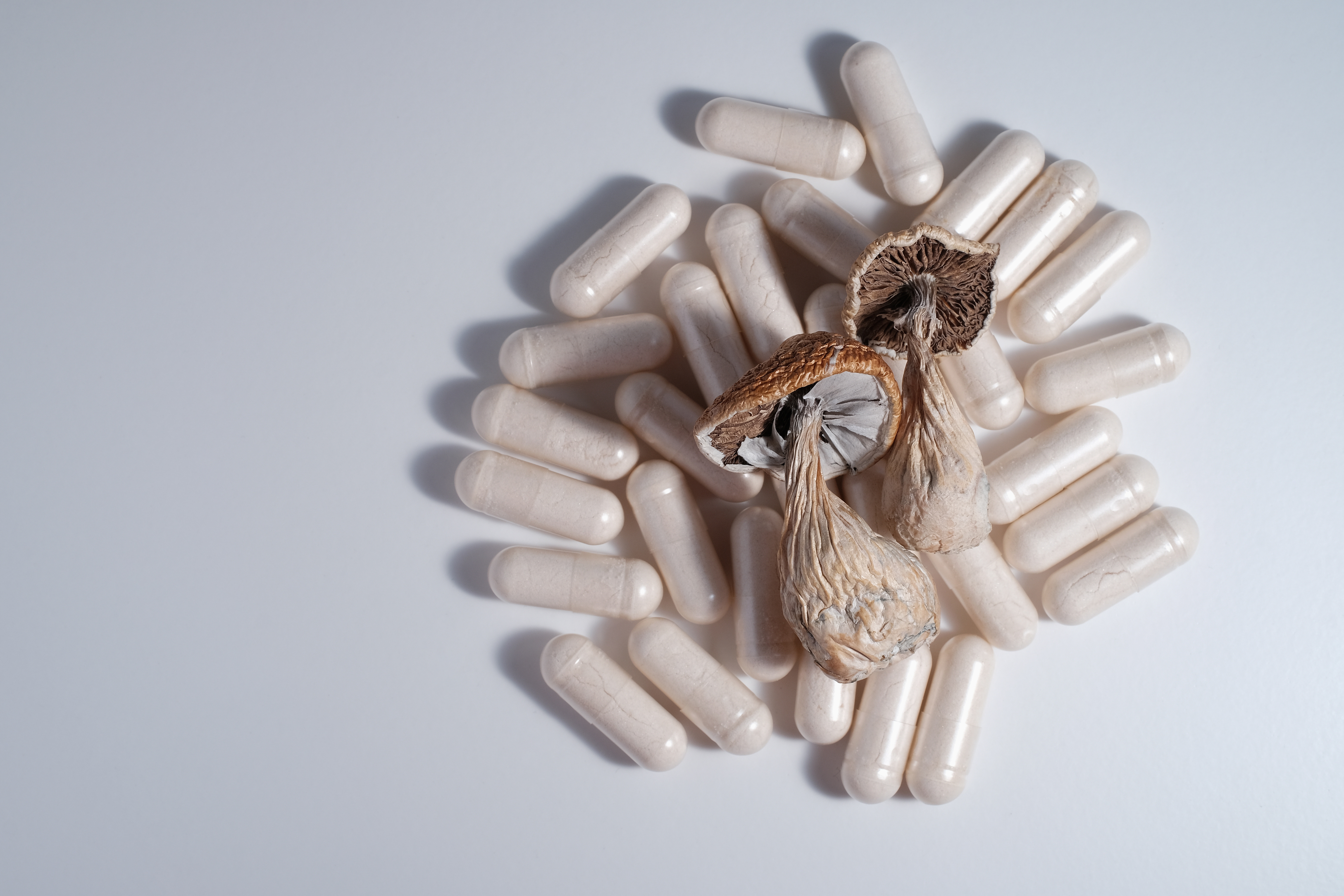The resurgence in interest in psychedelic medicines, like psilocybin, MDMA, LSD, and mescaline, for their potential to treat mental health conditions—including depression and post-traumatic stress disorder—as well as neurological disorders, like brain injury and Alzheimer’s disease, remains strong. A survey of U.S. health care professionals published late last year found that 95% supported the therapeutic promise of psilocybin, and 73% supported the therapeutic benefits of MDMA. This year, Colorado became the second state in the country to offer regulated psychedelic-assisted therapies. And earlier this month, Greenwall Faculty Scholars Program Committee Member and Alum I. Glenn Cohen, JD, spoke to The Hastings Center about his work on psychedelics and how interest in the therapeutic potential of psychedelics crosses political party lines.
Interest in and discussion around psychedelics has remained at the forefront since our previous blog on the topic in early 2023. Here, we highlight the work of Prof. Cohen and others from our Faculty Scholars community on the ethics of psychedelic medicine and research, published in the past two years.
Some have argued that psychedelics are transformative—either by changing the self or by providing knowledge that can’t be obtained by other means—and that these effects could undermine a patient’s informed consent. However, in their paper, Are Psychedelic Experiences Transformative?, Faculty Scholar Alums Brent Kious, MD, PhD, Andrew Peterson, PhD, and Amy McGuire, JD, PhD (also a Greenwall Board Member and Faculty Scholars Program Committee Chair), argue that “there is limited evidence that psychedelic experiences are transformative…and that they may not differ in their transformative features from other common medical experiences for which informed consent is clearly possible.” Moreover, “even if they are transformative,” the authors continue, “it does not create special problems for informed consent.” They go on to offer recommendations for informed consent processes for psychedelics recipients, including educating patients on the range of possible experiences—like the potential for profound or transcendent experiences that could change a patient’s values or beliefs as well as the possibility of disappointing experiences where patients don’t experience such transcendence or changes in values.
Concerns about psychedelic medicines’ transformative potential may be rooted in the perceived uniqueness of psychedelic experiences. The notion that some drugs are “safer, less morally repugnant, or otherwise different from others is called drug exceptionalism,” and when applied to psychedelics, it’s “psychedelic exceptionalism”—a concept explored further by Prof. Cohen and Mason Marks, MD, JD, in their paper, Psychedelic Medicine Exceptionalism. The authors consider whether psychedelic medicines should be treated differently in how they are researched, regulated, commercialized, and administered or whether they should be treated like other medical interventions. They ultimately take a middle ground in their conclusions: “[T]here are some distinctive, if not unique, aspects of at least some psychedelics regarding certain regulatory and ethical issues. However, in other instances we view the issues as similar if not identical to familiar quandaries for law, medicine, and ethics.”
In Pressing Regulatory Challenges for Psychedelic Medicine, Prof. McGuire, Holly Fernandez Lynch, JD, Prof. Cohen, and coauthor Lewis A. Grossman, JD, PhD, look at potential paths for psychedelic medicine regulation more specifically. They discuss regulating psychedelics in the therapeutic context, suggesting that the FDA may “impose [Risk Evaluation and Mitigation Strategies (REMS)] to establish the conditions in which approved psychedelic therapeutics could be provided, perhaps covering aspects of the therapeutic setting, eligible providers, and adjunctive psychotherapy.” They also address the challenges of regulating psychedelics amid state-sanctioned use of the drugs, which nonetheless remain illegal under federal law. The authors propose that FDA should mitigate challenges that result by, among other things, “robustly exercising its authority over medical claims made by manufacturers, distributors, and sellers and by imposing its traditional evidentiary standards for approval.” Finally, they discuss regulating synthetic drugs—like LSD—versus naturally occurring substances, like psilocybin and mescaline, and explain why developing synthetic drugs is more “commercially attractive.”
You can find more on bioethics and psychedelics from our community over the past two years below:
- Amy L. McGuire, et al., Supportive Touch in Psychedelic Assisted Therapy, The American Journal of Bioethics, January 13, 2025.
- I. Glenn Cohen, Psychedelics, Psychosocial Support, and Psychotherapy: Why It Matters for the Law, Ethics, and Business of Medical Psychedelic Use, Fordham Law Review, November 4, 2024.
- Joel Michael Reynolds, Nicholas G. Evans, Amy L. McGuire, et al., A Transformative Trip? Experiences of Psychedelic Use, Neuroethics, June 20, 2024.
- I. Glenn Cohen, et al., Essentials of Informed Consent to Psychedelic Medicine, JAMA Psychiatry, April 10, 2024.
- Amy L. McGuire, et al., Bio-Psycho-Spiritual Perspectives on Psychedelics, Perspectives in Biology and Medicine, February 2, 2024.
And there’s more to come. The Greenwall Foundation recently awarded a Making a Difference grant, Promoting High-Quality Ethics Review and Oversight of Psychedelic Research: Learning from Investigator Experience and IRB Perspectives, to develop empirically informed resources for IRBs and investigators engaged in psychedelics research. We’ll continue to track the progress of that grant, as well as the work of our broader community, as the ethics and policy surrounding psychedelic therapies continue to evolve.
